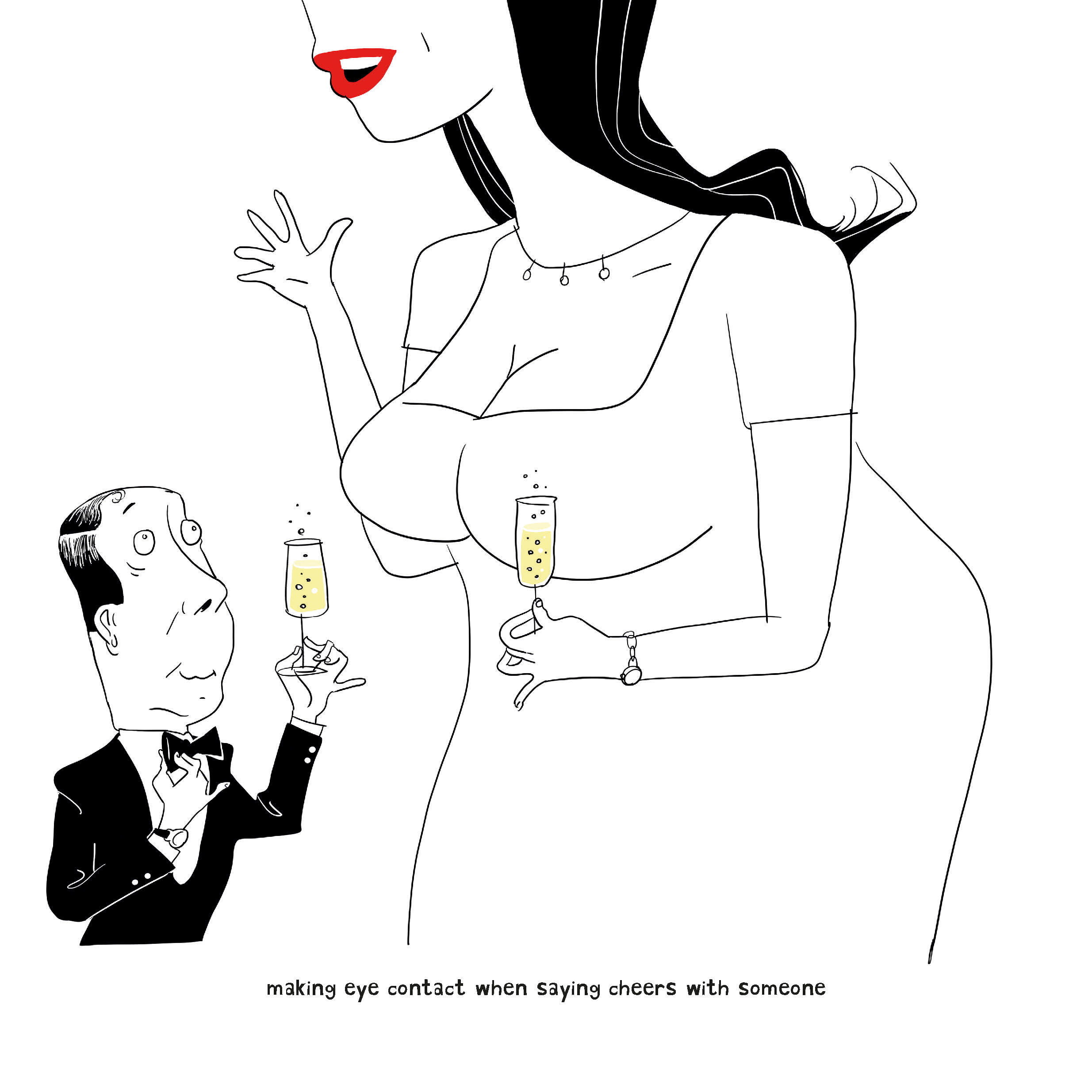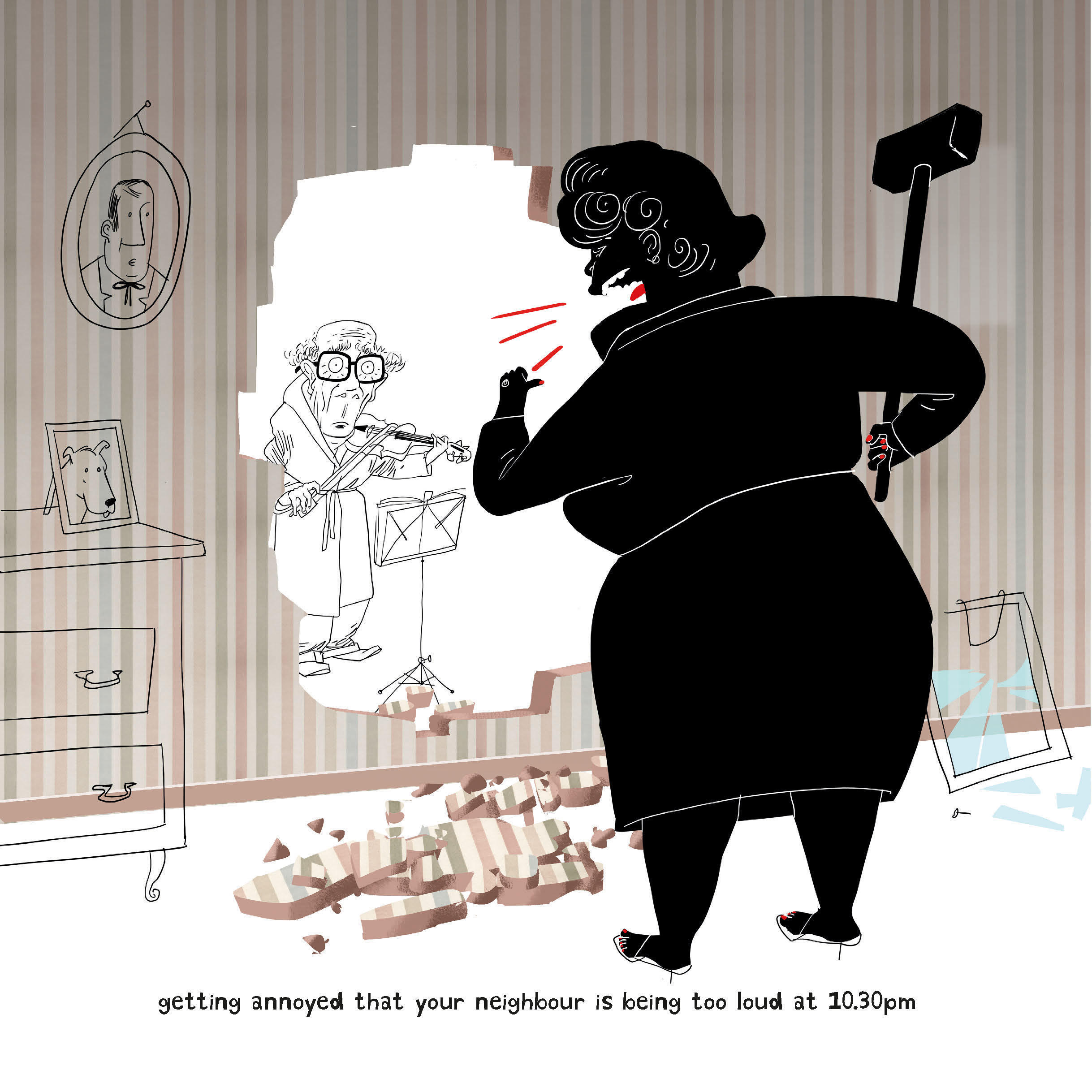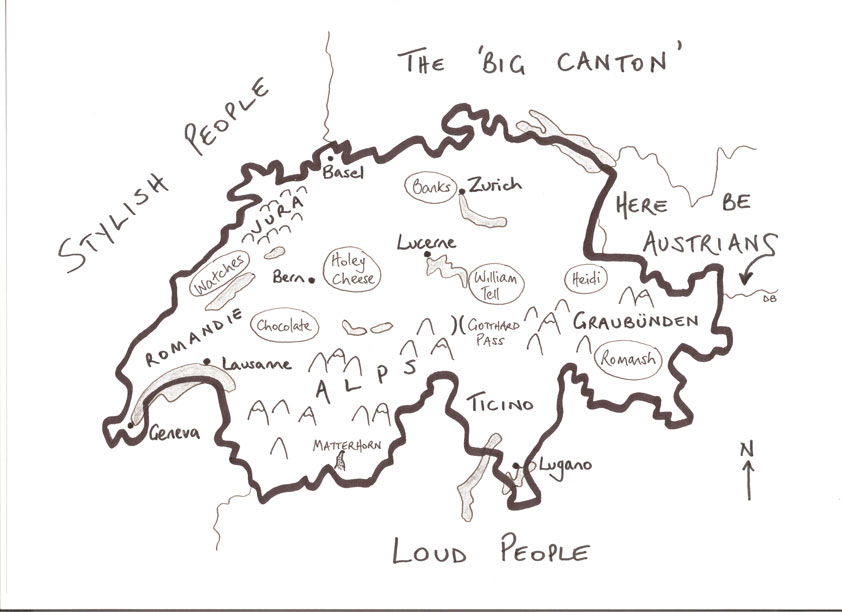An Englishman wants to know: How Swiss are you?
What does it take to become Swiss? How do you laugh like a Swiss? How should foreigners behave to become properly accepted in Swiss society? British author Diccon Bewes takes a look these and other intriguing questions about the national identity, which feature in his new book, ‘How to be Swiss’.
swissinfo.ch: What is your new book ‘How to be Swiss’ all about?
Diccon Bewes: It was supposed to be a serious book, a kind of instruction manual for foreigners wanting to apply for a Swiss passport. But I quickly realized that was impossible, as in a federal country like Switzerland different naturalization rules apply in each canton. The publisher and I then looked for other ideas and we began playing around with the idea of what it meant to be Swiss. We discussed the different rules of behaviour, history, politics and humour.
swissinfo.ch: Who is the book intended for?
D.B.: By changing the concept, we widened the target audience. The book should appeal to foreigners but it should also be interesting and funny for Swiss people. They may learn something new about themselves and their country. These could be small things, which might not immediately spring to mind, but which are part of everyday life and which are typically Swiss.
swissinfo.ch: You have been living for almost 12 years in Switzerland. What is it you like so much about this place?
D.B.: I love living here. Switzerland is my second home. But my British roots also form part of my identity. Here I love the mountains and the lakes. I love the work-life balance that so many people value and the fact that the pace of life is slower and more relaxed.
swissinfo.ch: You promise the readers of your new book that by the end they will have mastered the art of being Swiss. How well do you know it yourself?
D.B.: Pretty well. I am fairly punctual like the Swiss. I’m slightly better at being on time than in the past. When I’m in London it now annoys me if a train is five minutes late, although that’s normal there. When I greet friends in England, I now give them three kisses on their cheeks like in Switzerland. But as my British friends only give two kisses, I regularly end up blowing a kiss in mid-air third time round.
In the train I usually ask if a seat is free, although it may be obvious that no one is sitting in it. These small everyday aspects of Swiss life have become normal practice for me. Nowadays when I visit England, I cannot just switch off and stop doing them either.

More
Diccon Bewes
swissinfo.ch: What Swiss characteristics bother you?
D.B.: Swiss men and women are incredibly chaotic at bus stops or at the baker’s. They don’t seem to understand the word ‘queue’. In England it’s polite and quite normal to wait in line – even if you are on your own waiting for a bus.
Swiss bureaucracy can also be annoying. Rules seem to be chiselled in stone. People who adhere to them are definitely at an advantage. That’s the plus side. But strict rules prevent people from thinking for themselves. They become inflexible.
swissinfo.ch: How Swiss do you intend to become?
D.B.: Next year I can apply for a Swiss passport. It will be a long and expensive process. But I’m looking forward to it as I would like to participate in political life here and to be able to vote. I will always have both British and Swiss sides to me. Feeling British doesn’t prevent me from also feeling Swiss.
swissinfo.ch: You describe the Swiss as not very spontaneous, xenophobic and obsessed with money, but also punctual, respectful of rules and cleanliness. How do you come to this conclusion?
D.B.: It’s a mix of personal experience, conversations with Swiss people and foreigners in Switzerland, and research. Every country and their citizens come with their own clichés. And there is an element of truth about many of them. At the same time, it’s not possible to describe six million Swiss citizens with a single adjective.
swissinfo.ch: Swiss regions are very different to each other owing to the four national languages – Swiss German, Italian and Romansh. Wasn’t it difficult to come up with the characteristics of a typical Swiss person for your book?
D.B.: No. There are regional differences in every country. For Switzerland, they are not as important as the Swiss like to believe. It is part of their federal and direct democracy-related identity for them to say they are different. And also to not be like the people in their neighbouring town. Language differences reinforce this idea. But the lifestyles of people in Lausanne [in French-speaking Switzerland] are much more similar to those of fellow citizens in Lucerne [in Germany-speaking Switzerland], for example, than in Lyon in France.
swissinfo.ch: In your book you talk about the legendary oath of the Old Swiss Confederation taken on the Rütli meadow near Lucerne, and about William Tell, Heidi, the Swiss army knife, Toblerone and grilled cervelat sausages. These all sound to me like ancient Swiss stereotypes…
D.B.: No. They correspond to the images that foreigners have of Switzerland. You can test them yourself. Ask any foreigner what springs to mind when they think of Switzerland. They will all give you this list of Swiss stereotypes. Switzerland is a small country with a great reputation abroad. If they were asked the same question about Bulgaria or Lithuania, for example, I don’t think people would be able to say straight away.
swissinfo.ch: One chapter deals with political themes, including the Swiss system of direct democracy. To what extent are the Swiss people shaped by this right to have a say on a range of different issues?
D.B.: In Switzerland, citizens are able to give their views on specific issues every four months. Before the vote political posters are found on the walls in every city and the media report on every issue. Between ballots people collect signatures at the market for another political issue to vote on. So people are always concerned by a particular political issue.
Of course people discuss such things in England. But it’s not comparable to Switzerland, where citizens can participate directly to make their voices heard. Here no one can complain that they haven’t been asked for their opinion, whether it be about local or global issues. As a Swiss person, you have that choice.
swissinfo.ch: “How to be Swiss” is your fifth book about Switzerland. Are you not slowly running out of ideas?
D.B.: Not yet. At the moment I don’t have any new ideas. But Switzerland is an interesting and multifaceted place.
swissinfo.ch: As an English writer could you imagine publishing a similar book about the British, or do you have to be foreign to write these kinds of books?
D.B.: Being a foreigner makes it easier. It’s true that you need to know the country you are writing about well. It’s also important to have that emotional and geographical distance in order to give a proper outside perspective on the country. I feel I still don’t have enough distance to my British homeland to be able to write a ‘How to be British’ book.
Translated from German by Simon Bradley

In compliance with the JTI standards
More: SWI swissinfo.ch certified by the Journalism Trust Initiative









You can find an overview of ongoing debates with our journalists here . Please join us!
If you want to start a conversation about a topic raised in this article or want to report factual errors, email us at english@swissinfo.ch.